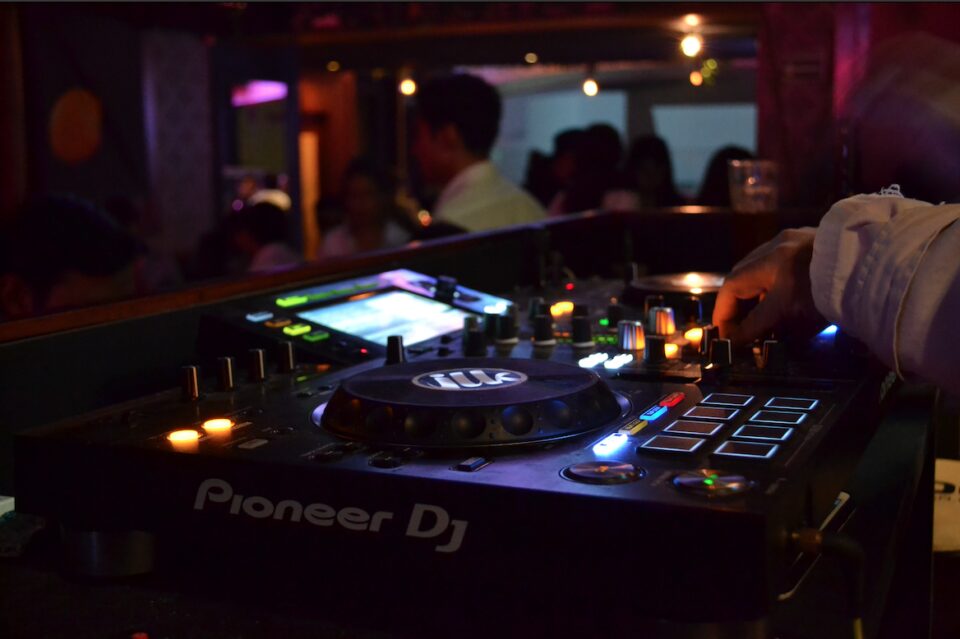In the electrifying scene of live music, a DJ’s prowess is often measured not just by their technical skills but by their ability to read and respond to the crowd. Every audience is a unique blend of tastes, expectations, and energy levels; a living entity that breathes and reacts to every beat, melody, and rhythm.
The most memorable sets aren’t just well-rehearsed and expertly delivered; they are alive, adaptive, and responsive. They ebb and flow with the crowd’s energy, leading to an experience that’s both collective and profoundly personal. Reading the crowd and adapting sets on the fly can be elusive, intuitive, and requires experience and skill. This separates the good DJs from the great.
DJs must equip themselves with an arsenal of skills and strategies. The ability to gauge audience demographics, interpret body language, and adjust musical selections in real-time are all major components of delivering a performance that resonates and reverberates long after the final track fades.
This article aims to offer insights, tips, and techniques for aspiring and established DJs alike. From understanding the preferences of diverse audiences to the practical aspects of song selection and mixing, this article explores what it means to truly connect with a crowd and elevate the live music experience to unprecedented heights.
Understanding the Audience
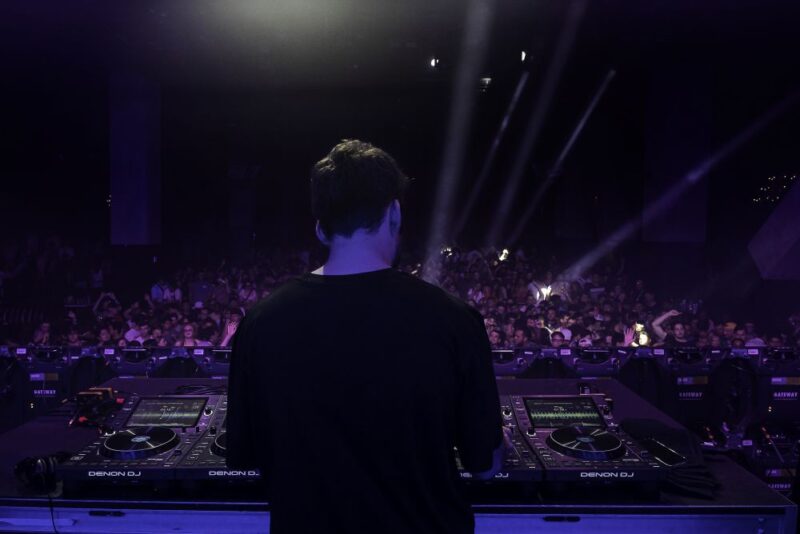
Age Group
For younger crowds, contemporary hits and trending genres might be the go-to, while older audiences might appreciate classics and nostalgic tracks. As such, DJs in Asheville must tailor their sets to align with the generational tastes of their audiences, ensuring the music resonates with the majority.
Musical Era
Different eras have distinct musical styles and hits. By identifying the era that the audience is most connected to, a DJ can weave in tracks that bring a sense of nostalgia or affinity, creating an immediate connection with the crowd.
Genre Preferences
Every audience has a unique mix of favored genres. DJs should observe the crowd’s reaction to different music styles, subtly testing the waters with a variety of tracks to pinpoint the genres that ignite the most enthusiasm and energy.
Reading Body Language and Energy Levels
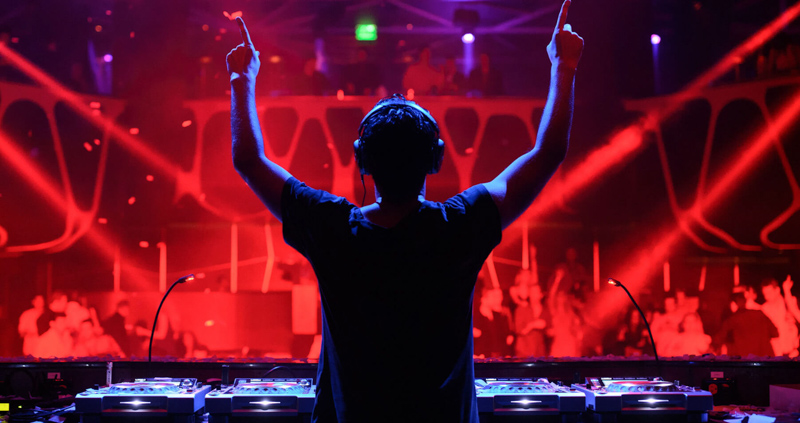
Crowds communicate their enjoyment and engagement through non-verbal cues. DJs need to be adept at reading this silent language. From the sway of the crowd to the level of engagement on the dance floor, these cues are integral in assessing and adapting the music set in real-time.
Utilizing Social Media
Social media has become an indispensable tool for DJs looking to connect with their audience and tailor their performances. These platforms not only provide a treasure trove of data about the audience but also offer a direct line of communication. DJs can engage with their followers, taking song requests, gathering feedback, and even teasing sneak peeks of their upcoming sets to generate excitement.
Moreover, social media enables DJs to foster a sense of community around their music, creating a loyal fan base that can help spread the word about their performances and build anticipation for upcoming events. By harnessing the power of these platforms, DJs can enhance their creative process, ensuring that every track played resonates with the crowd and leaves a lasting impression.
Practical Strategies
Start with a Planned Set, Be Ready to Diverge
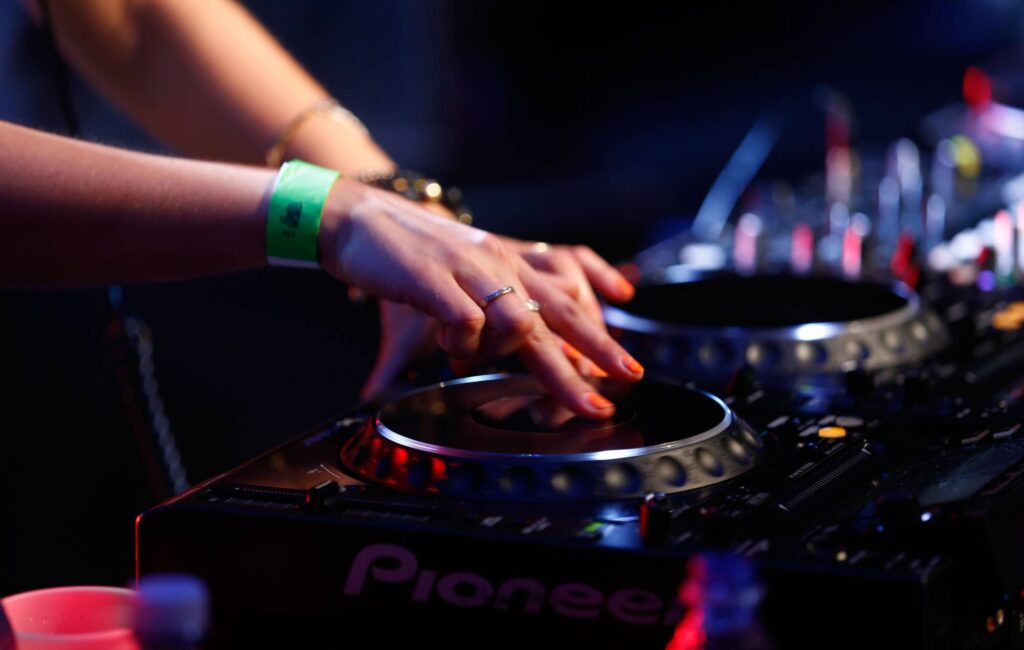
Starting with a well-curated set guides the DJ through the performance. However, the real magic lies in the ability to diverge from this plan. The most iconic performances are fluid, with DJs weaving in impromptu selections that echo the pulse and fervor of the crowd, transforming a planned set into an organic, dynamic experience.
Reading Crowd Energy Levels
When the energy surges, skilled DJs ride this wave, escalating the tempo and intensity of the music to elevate the atmosphere, transforming passive listeners into active participants. Conversely, when noticing a dip in energy, consider transitioning to more mellow or beloved hits can re-engage the audience, fostering a more intimate and connected experience.
The Role of Requests and Shout-Outs
Honoring song requests and giving shout-outs isn’t just a crowd-pleaser; it’s a strategy to foster audience engagement. It personalizes the experience, making individuals feel seen and heard, thereby amplifying the collective energy of the room.
The Music
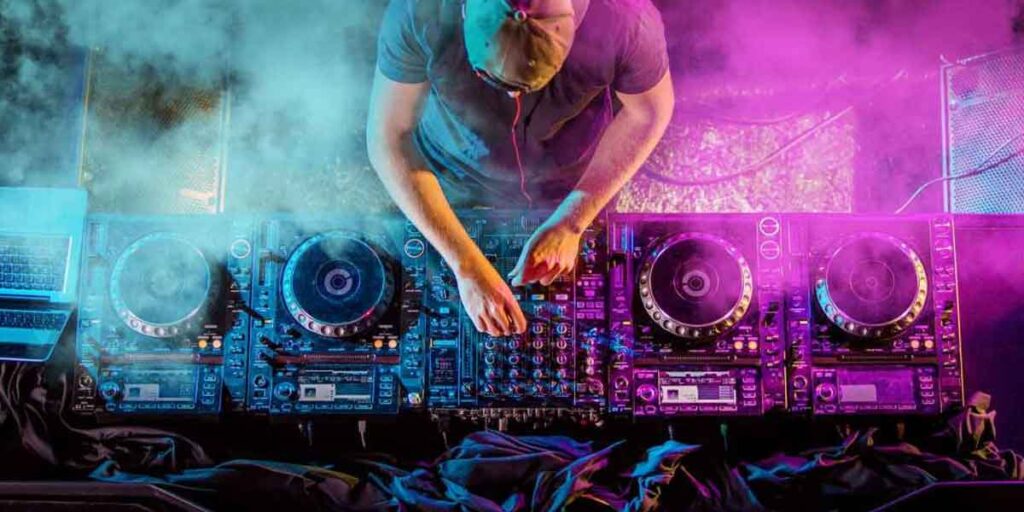
Music selection is a p that every DJ must master, and it often hinges on a profound understanding of both the venue and the crowd. Each venue, whether it’s an intimate lounge, a bustling nightclub, or an expansive outdoor festival, emanates its distinct ambiance that calls for a specialized musical touch. A lounge might beckon the soulful and mellifluous tunes to accentuate its cozy, intimate vibe, while a nightclub might demand electrifying beats that compel every guest to the dance floor.
A younger audience might be in pursuit of contemporary hits and electronic dance music, while an older demographic might find nostalgia and connection in the classics and iconic anthems. Thus, the DJ’s role transcends mere performance – it’s a harmonious blend of observing, listening, and responding, ensuring that every set is not just heard but deeply felt, marking the intersection where music, venue, and audience meet, meld, and transcend.
Mastering how to read a crowd and adapting sets on the fly elevates a DJ from a mere performer to a musical alchemist, capable of transforming any event into an unforgettable experience. This requires a balanced blend of technical skill, emotional intelligence, and the ability to harmonize pre-planned sets with the dynamic, ever-changing energy of the crowd. Armed with these insights, aspiring and seasoned DJs alike are poised to not just perform, but to connect, captivate, and create musical moments that transcend time, leaving an indelible imprint on every audience member.

